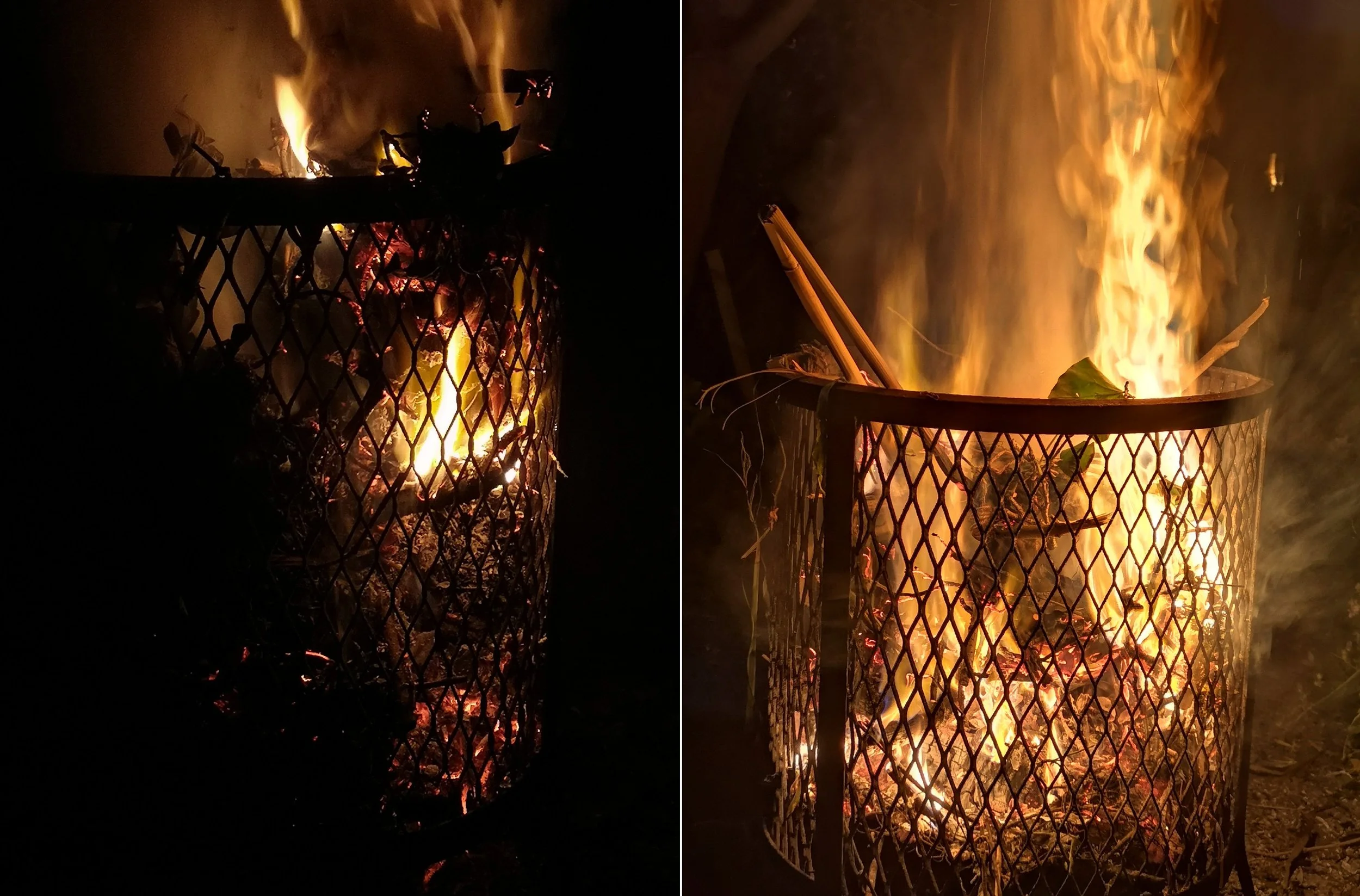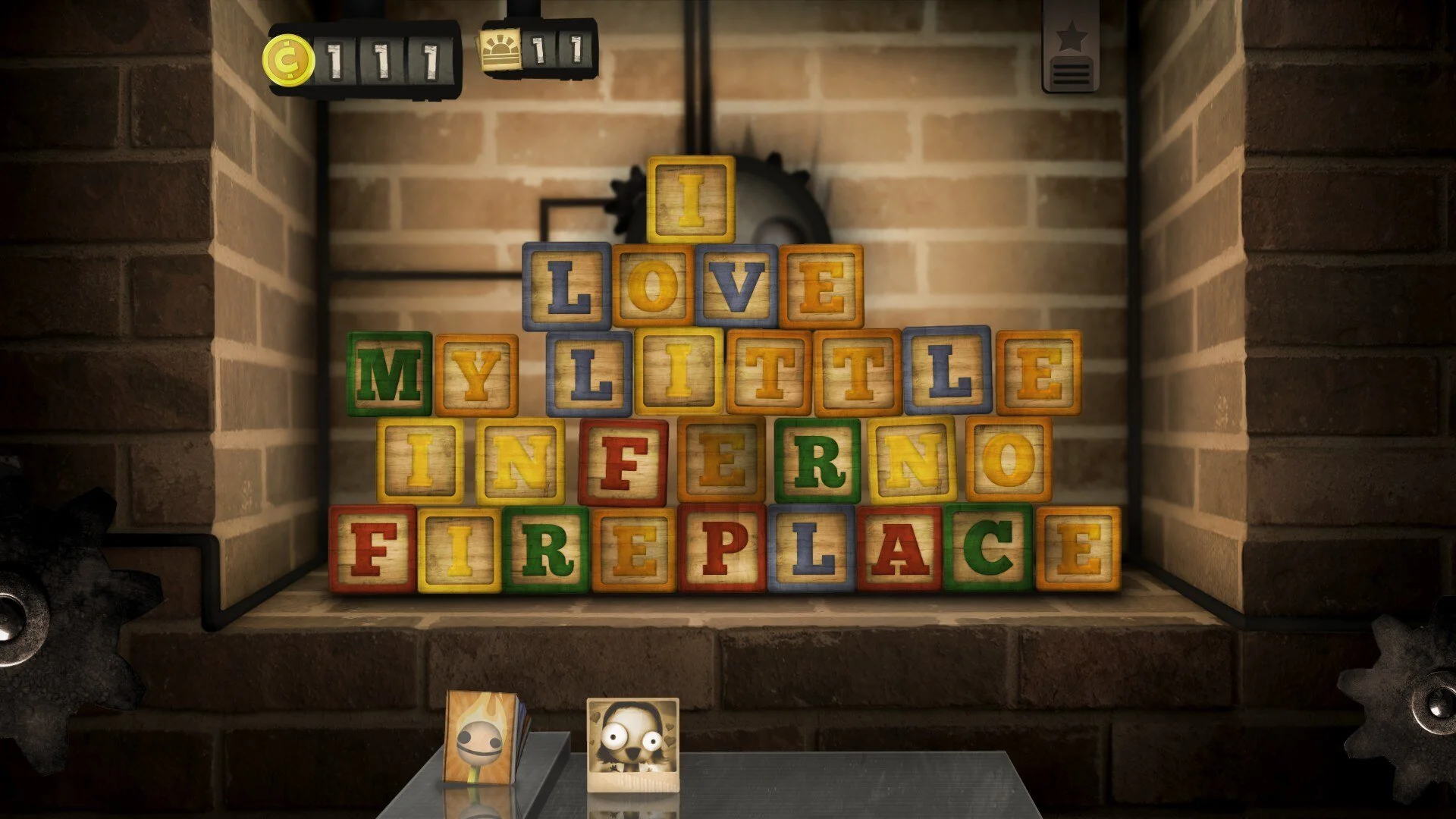Little Inferno: The Healing Power of Fire
NOTE: This text is an adaptation of the words that I spoke with my mouth on the latest podcast episode. I’ve stripped it of its list context to try to reframe and contextualise just what Little Inferno is or does or means, to me at least.
—
During the first major lockdown of 2020 - the one that was 3 weeks long before it was 6 weeks long before it was 3 months long - during that period, anyway, there were very few day to day highs for me.
2020: Great vibes all round.
As a teacher, I tried to keep up with work as my school at the time pivoted loosely to some early form of online learning. As a person I tried to keep myself ticking over with odd jobs and short-lived creative ideas to keep the brain wolves from the brain door.
My lockdown beard and lockdown girlfriend.
Outside of my personal roles and responsibilities, still living at home then, in those early days, the relative unknowns of the virus meant that I was hyper vigilant of my own family’s health as well. It seemed at that time, on paper at least, that the slightest exposure to someone with the virus, or even a packet of crisps in a shop that had been physically passed by someone with the virus, would guarantee transmission, and so I panicked daily that someone like my Mum with her laundry list of health issues, would surely die if one of my inadvertently covid infected shoes crossed the threshold of the house.
It meant that for months I didn’t see my partner Georgia in person at all, other than to sit in the garden at a distance of 10 metres, trying to talk over the spring breeze.
It wasn’t much fun.
—
One genuine high point however, was rescuing a local lost cat called Billie who I tracked and traced around the neighborhood for weeks. Seeing posters up on every pole, tree and street sign in the area, once Dad had suggested he may have seen her in the garden one evening, the seed had been planted that I would be the one to rescue the cat.
I set up a trap to catch her in with the aid of a local pet rescue charity. I fed her from a distance every day I saw her to try and make her feel more comfortable with me and my presence. I sat in the garden and mewed when she was near to build up what I believed was some sort of communicative relationship. And, after about 4 weeks, I managed to lure her into the trap with a packet of Go Cat, and quickly closed the door.
Billie.
Looking back at the time I dedicated to this venture, it all seems quite mad. Hours of my day every day for about a month.
But there was a great payoff in reuniting Billie with her owner. I’d always had that end goal in mind.
I’d been working towards that end point, like a game.
—
The second high point was burning stuff.
Mum and Dad have quite a large garden, and throughout the winter and early spring had managed to generate quite a lot of garden waste. A usual sunday for Dad pre-Covid would involve popping to the local tip to dump big bags of tree bits and scrub and whatever else into the big pneumatic bins, but, in lieu of lockdown, the tip was not in operation, and so Dad decided to, night by night - burn the garden waste.
Lockdown was largely about ritual for me: school work in the morning, Animal Crossing from lunch, a long walk and phone call to Georgia before tea, chasing Billie around the neighbourhood after din dins, then bonfire time.
In a few elastic weeks that felt both incredibly short and incredibly long, Dad and I burnt through about 50 bags of garden waste, 4 or 5 a night.
At one point the flames got so high we singed the branches of an overhanging tree and had to throw on a load of old wet mulch to calm it down whilst we choked through its mossy fug.
Fire is mesmeric, truly. And as much as I could have done without all of my clothes and hair smelling like I was an arsonist for the next calendar month, those evenings helped a lot to cap off each strange non-day.
There’s a strange pattern to fire. Its movement, like water, is so organic that it’s easy to be transfixed by the little dance of the flames. And there was something about the way the pile of bags would slowly reduce that, like Billie, felt gamified in some way.
If chasing a loose cat around the neighbourhood in an effort to build a relationship was gamey in how it was about constructing and developing something, the bonfires felt just as gamey in reverse. Sort of ticking things off a list, blasting through a stack of bags until there were no bags left to stack.
—
A real videogame that ties all of these stories together is Little Inferno, a title created by the team behind the indie darling World of Goo, Tomorrow Corporation.
I played Little Inferno first on the Wii U when the paucity of options both at retail and via the eShop meant that I’d give anything a go. And then years on I played it again on the Switch. I loved it deeply both times. Little Inferno is a beautiful combination of development and deconstruction in mostly equal measure.
For the uninitiated: Little Inferno takes place almost exclusively in front of a fireplace. You order things from a catalogue and burn them in the fire. Burnt items generate coins which you use to buy more things from the catalogue. That’s it really.
It takes elements of idle games, of the wait timers we associate with mobile games, but subverts how all this stuff is used by making it all feel so deliberately pointless. The items don’t do anything - some of them burn in different ways, some of them make a funny noise as you chuck it into the fire - but they don’t grant you anything. So it’s just buy, burn, buy, burn, buy, burn. That’s the gameplay loop. It’s incredibly simple.
You can make combos as well, I’ll give it that, so there is a bit of a puzzle layer to the game that you’re free to engage with if you fancy. Cryptic clues like ‘Movie Night’ or ‘Airplane Mode’ ask that you consider what gets torched concurrently, adding just a simple hint of strategy to the way you indiscriminately burn. To unlock Movie Night for example, you’ll be chucking in ears of corn and a television. For Airplane Mode, a handful of electronic devices you’d normally be asked to turn off during a flight - so a tablet, a cellphone, y’know.
I enjoyed this extra layer of thought, but Little Inferno isn’t an all-timer purely because of its core gameplay for me.
I know it was never developed as one, but Little Inferno felt like such a lockdown game. Playing it in 2020 via Super Rare Games physical Switch release, it felt so of the time that its initial digital release seemed almost prescient.
The endless churn of catalogue purchases in Little Inferno seemed to perfectly mimic the thousand Amazon parcels every residential street received daily during that time. The way your correspondence with the recurring characters in the game all took place via letter felt like it was referencing the awkward transition to communicating via myriad alternative means that we all had to endure. The glib humour but solemn atmosphere that persists throughout the game seemed to reflect how the exceedingly nice weather outside was not how anyone was feeling internally. A sort of inverse pathetic fallacy.
And yet, of course, the Little Inferno that launched in 2012 renders all this pontification ultimately meaningless.
Except. Except. Even when it first released, Little Inferno was still a critique of capitalism. It was still an acknowledgement of the weirdly healing and purging power of fire. It was still a conversation about what’s truly important in life, because despite how much we may enjoy stuff, and I personally fucking love stuff, we also need connection. It used trends of mobile gaming as the driver for these messages, and regardless of its release window, was just a really effective piece of… not storytelling per se, but loose allegory? Societal discourse?
When I played the game on the Wii U, I wrote a waffling piece about the experience on my then website that closed with the lines:
“When your pen pal finally announces their location by thumping on the wall that you are told separates your houses, allow yourself to feel startled yet comforted by the presence of a narrative voice which has acknowledged both you and your pyromaniacal addiction.
They’re right behind you. You heard them.
You are not alone.”
Playing the game in 2020, almost 10 years on from its launch, at that lowest human ebb, this feeling of a need for connection and purpose felt like it had been magnified a thousand times over.
Billie the cat. Dad and the bonfire. A world in lockdown.
And Little Inferno.







